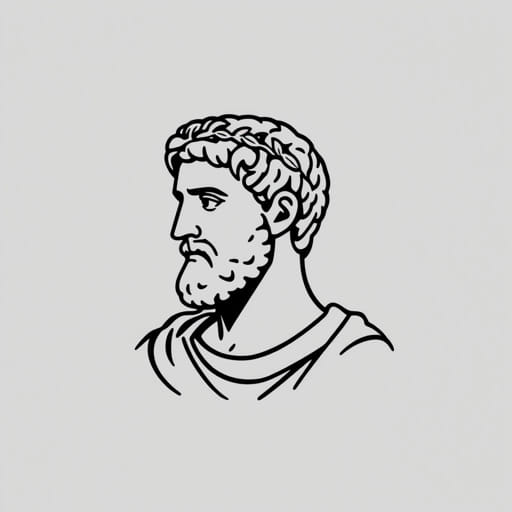Many people today encounter the name Marcus Aurelius through quotes shared on social media or references in popular culture, especially relating to Stoic philosophy. However, some might wonder if Marcus Aurelius was a real historical figure or just a symbolic creation of ancient literature. The answer is clear: Marcus Aurelius was indeed a real person. His life, writings, and impact on history are well-documented and supported by historical sources across centuries. Understanding who Marcus Aurelius was not only helps us appreciate ancient Roman history but also the evolution of leadership, ethics, and thought in Western civilization.
Early Life and Family Background
Marcus Aurelius was born on April 26, 121 AD, in Rome, into a prominent Roman family. His birth name was Marcus Annius Verus. His family was wealthy and well-connected, with ties to the imperial court. He was adopted by Antoninus Pius, who became emperor after Hadrian. This adoption was part of a succession plan organized by Hadrian, which placed Marcus in line for imperial power at a young age.
Marcus received a comprehensive education in rhetoric, Greek, Latin, and philosophy, particularly under the influence of Stoic thinkers. He quickly gained a reputation for his intelligence, calm demeanor, and deep interest in philosophy, especially Stoicism, which would later shape his leadership and writings.
Rise to Power and Co-Emperorship
Marcus Aurelius became co-emperor with Lucius Verus in 161 AD after the death of Antoninus Pius. Although it was the first time Rome had two emperors ruling jointly, Marcus was regarded as the senior partner due to his greater experience and philosophical standing. When Lucius Verus died in 169 AD, Marcus ruled alone until his own death in 180 AD.
During his reign, Marcus Aurelius faced multiple challenges, including wars on the empire’s northern frontiers and internal unrest. His ability to manage these difficulties with a sense of duty and reason is part of what makes his legacy so enduring.
Key Contributions as Emperor
- Maintaining the stability of the Roman Empire during times of military conflict, especially against Germanic tribes.
- Managing a major pandemic, known as the Antonine Plague, which caused significant death and disruption.
- Balancing war with administration and legal reforms within the empire.
Marcus Aurelius and Stoic Philosophy
One of the main reasons Marcus Aurelius remains so influential today is his book,Meditations. This collection of personal writings reflects his thoughts, doubts, and philosophical insights. Originally written in Greek for his own self-improvement,Meditationsoffers a rare glimpse into the mind of a Roman emperor attempting to live according to Stoic principles.
Core Themes in His Writings
- Control what you can; accept what you cannot.
- Virtue, reason, and nature are central to a meaningful life.
- Anger, grief, and ambition must be tempered by logic and duty.
These writings show that Marcus was not merely a ruler but a thinker who continuously wrestled with ethical questions and the responsibilities of leadership.
Historical Evidence of His Existence
Marcus Aurelius’s life and reign are recorded not only in his own writings but also in numerous ancient sources. Roman historians like Cassius Dio, theHistoria Augusta, and later Christian writers all mention his deeds and character. In addition to written records, numerous statues, coins, and inscriptions bearing his image and titles have been discovered throughout the former Roman Empire.
One of the most famous artifacts is the equestrian statue of Marcus Aurelius, which still stands in Rome today. This bronze statue survived the widespread destruction of pagan imagery because it was mistakenly thought to represent Constantine, the first Christian emperor.
Legacy of Marcus Aurelius
Marcus Aurelius’s reign marked the end of the so-called Five Good Emperors of Rome a time when rulers were chosen for merit rather than birthright. Unfortunately, his son Commodus, who succeeded him, was far less capable, and the empire began a slow decline after Marcus’s death in 180 AD.
Despite this, Marcus Aurelius left behind a legacy of moral leadership, philosophical introspection, and an enduring example of how to rule wisely during difficult times. HisMeditationscontinues to be read by people from all walks of life, from political leaders to students of philosophy.
Influence on Modern Thought
- Stoic revival in modern psychology and self-help literature.
- Quotations fromMeditationsfrequently used in leadership and ethical training.
- He is often cited as a model of virtue-driven leadership.
Marcus Aurelius Was Truly a Historical Figure
There is no doubt that Marcus Aurelius was a real person. His life is documented through multiple reliable sources, including his own personal writings and the observations of contemporaries and later historians. He was not only a Roman emperor but also a philosopher whose thoughts on life, ethics, and duty still resonate in the modern world.
From his early education in Stoic principles to his leadership during times of war and plague, Marcus Aurelius stands as a testament to how reason and virtue can be applied to governance and personal life. The question Was Marcus Aurelius a real person? can be answered with a definitive yes, supported by a rich legacy of historical evidence, philosophical insight, and enduring influence that continues to shape minds centuries after his death.
